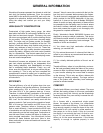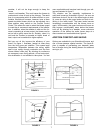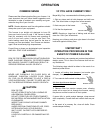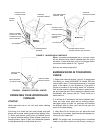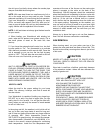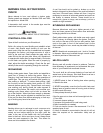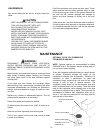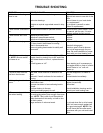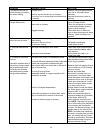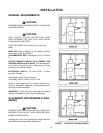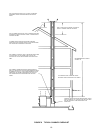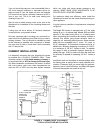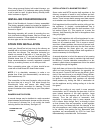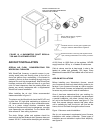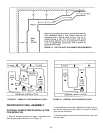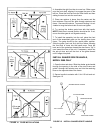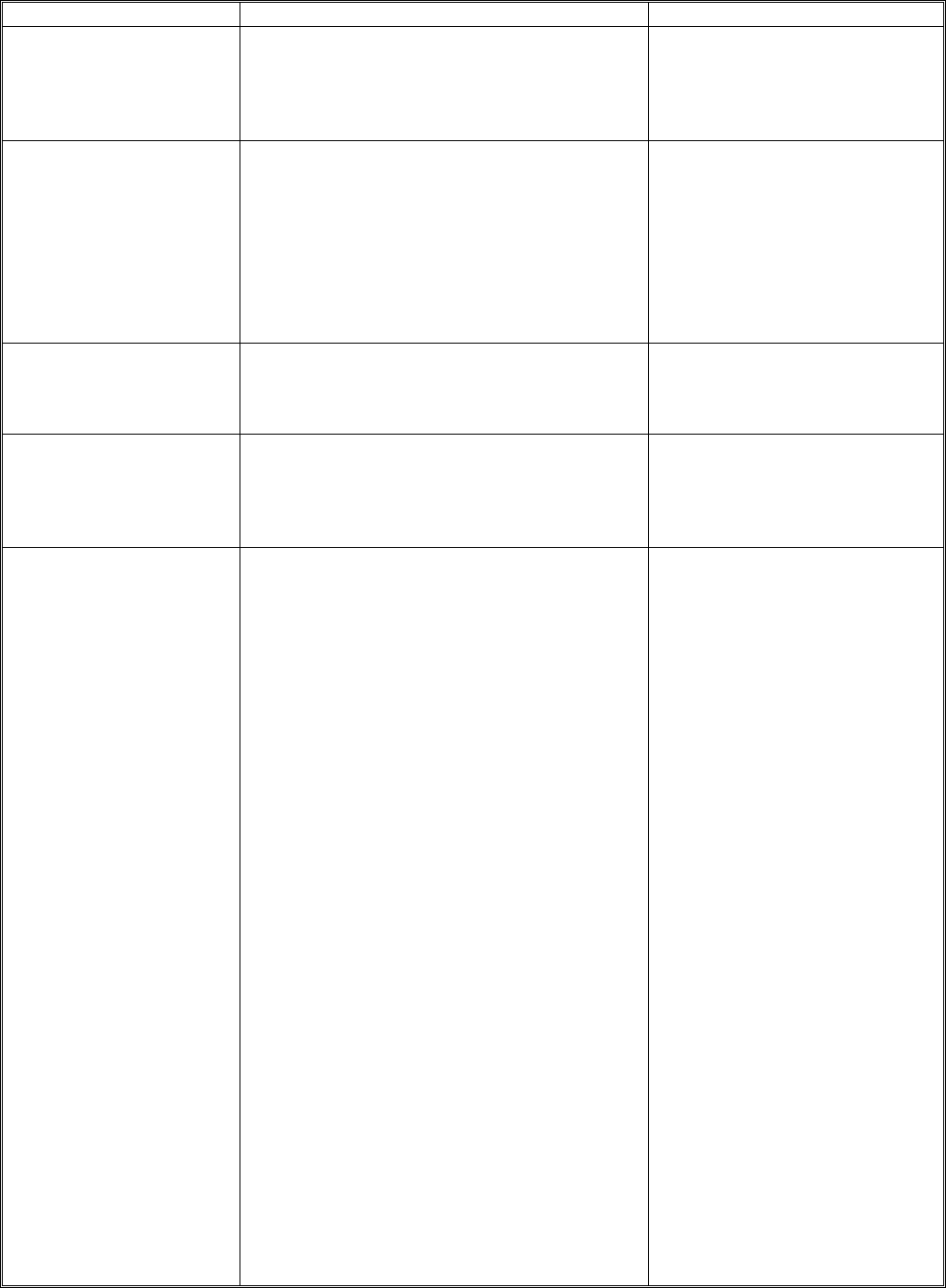
14
PROBLEM POSSIBLE CAUSE SOLUTION
9. Excessive amounts of
smoke coming out loading
door when loading.
Improper draft.
Chimney cap too close to top of chimney.
Too long of run of smoke pipe from Woodchuck
to chimney.
Measure with draft gauge-should
have .04 to .06 water column.
Relocate.
Relocate Woodchuck closer to
chimney.
10. Puffing of smoke
through draft control.
Improper draft.
Down draft on chimney.
Plugged chimney.
Check draft with gauge. Should be
.04 to .06 water column.
Check for cold spots on chimney
or obstruction outside chimney.
Trees or other buildings.
Check with mirror in clean-out
door or send cleaning brush down
chimney. Check stovepipe con
-
nections.
11. Excessive dirt build-up
around air vent in home.
Too much smoke escaping out of loading door
when loading.
Bad weld in fire box of unit.
No return air ducting.
Check problem No. 9.
Call dealer immediately.
Install return air duct.
12. Improper seal around
door.
Door rope not sealing on door frame.
Loose door from shipment.
Check door rope so that all parts
of door frame are sealed, espe
-
cially corners.
Simply bend door latch in to
tighten door seal.
13. Excessive creosote
build-up.
A reminder, whatever kind of
fuel you burn, there is some
kind of residue build-up on
the furnace and chimney.
Same with wood no matter
how good the conditions.
The use of wet, frozen, or unseasoned wood.
The use of soft wood, particularly those of high resin
content such as plywood or blandex with glue.
Poor natural draft or an obstruction in the stove
pipe or chimney flue.
Too long of burning times.
Inadequate amount of oxygen supplied to the
combustion chamber
Low fire or flue gas temperatures.
Uninsulated stovepipe or chimney flues, espe
-
cially if construction is exterior to the house.
Air leaks in the stove pipe or chimney.
If you have to use wet wood, make
loads smaller and burn them hotter.
Avoid using if possible.
Measure draft with gauge. Should
have a minimum of .04-.06 water
columns of draft.
Smaller and hotter fires.
Adjust draft for hotter fires or in
some homes, it has been deter-
mined there was not enough in the
basement due to such an air-tight
home. We recommend 4" round
hole to the outside with a screen
on to keep varmints out.
Smaller loads of wood and hotter
fire. Stack temps. should maintain
minimum 300° to 400°.
Never use uninsulated pipe for
chimneys installed on the outside
of the house, INSULATE!
Check chimney from top to bot
-
tom. NOTE: Creosote is a tarry liq
-
uid or solid coming from distillation
of wood during the combustion
process. The heavier buildups, the
greater chance of a chimney fire.
NOTE: No matter how seasoned
the wood, no matter how good the
draft, you always will get a small
amount of soot buildup. Should be
cleaned before winter firing and
during mid-winter’s firing.



